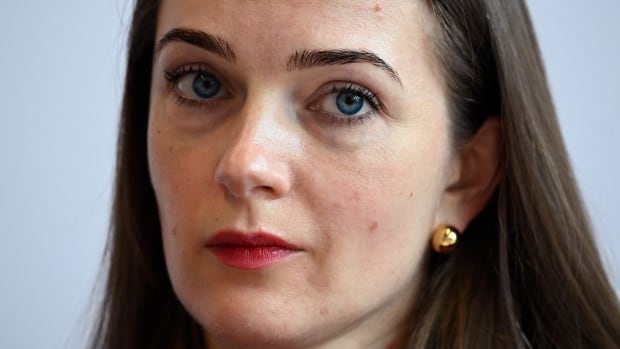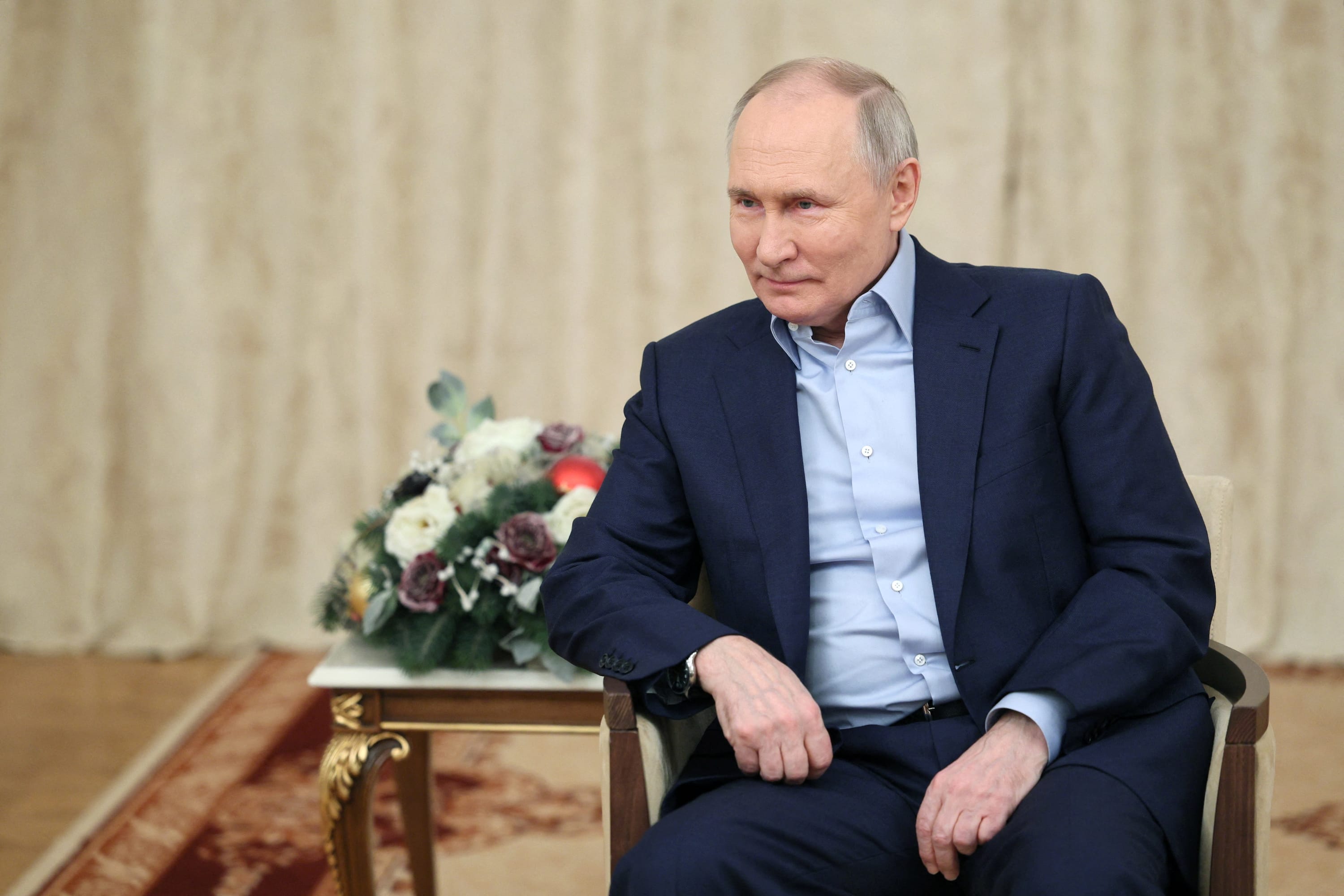
As It Happens6:23Ceding land to Russia would be occupation disguised as peace: Ukrainian Nobel winner
Nobel Peace Prize winner Oleksandra Matviichuk says any peace deal that hands Ukrainian territory to Russia would be no peace deal at all.
It’s been 700 days since the 2022 Russian invasion of Ukraine, and the war between the two countries shows no signs of abating.
Ukrainian President Volodymyr Zelenskyy has put forward a peace plan that, among other things, demands the expulsion of all Russian forces from his country — something he says is non-negotiable. Russian President Vladimir Putin said last month: “There will be peace when we will achieve our goals.”
But as both sides dig their heels in, some — including Slovakian Prime Minister Robert Fico and former U.S. Republican presidential candidate Vivek Ramaswamy — have called on Ukraine to negotiate a settlement with Russia that would cede some of its territory.
Multiple media outlets citing anonymous sources, including NBC News, report that U.S. and European leaders have pressed Ukraine behind the scenes about what the country “might need to give up” to achieve peace with Russia. Zelenskyy, however, says none of his country’s allies has ever asked Ukraine to make a compromise “which they know is not acceptable for us.”
While the vast majority of Ukrainians oppose ceding territory to Russia, a recent poll of more than 1,000 Ukrainians by the Kyiv International Institute of Sociology found 19 per cent of those surveyed in November and December favoured giving up land to Russia, up from 14 per cent in October and 10 per cent in May.
Matviichuk is the head of the Centre for Civil Liberties, a Ukrainian human rights group that won the Nobel Peace Prize in 2022 alongside Belarusian human rights advocate Ales Bialiatski and Russian human rights organization Memorial. She recently spoke to the Globe and Mail about what it will take to achieve peace in Ukraine.
Here is part of her conversation with As It Happens host Nil Köksal.
Oleksandra, how do you define peace?
I define peace as a possibility to live without fear of violence and have a long-term perspective.
When people hear the word peace, you know, they generally think it’s an end to the fighting in a conflict like this one. A peace deal is not on the table at the moment. We know one day there will have to be one. But it’s crucial to you that peace means not just an end to the fighting. Why?
I have been documenting Russian war crimes for 10 years already. And I know that people who live in occupation live in a grey zone. They have no tool[s] … to defend and protect their rights, their freedom, their property, their lives, and their beloved ones.
Occupation is not peace. It’s just another form of the war.
Are you concerned, then, that Ukraine’s allies will, at some point, perhaps apply pressure to your country and its leaders to make concessions on territory?
Ukraine will define our destiny, because it’s our responsibility.
This claim to Ukraine that we have to satisfy Putin’s imperialist appetites and give up some territories, such claims are wrong and immoral. These claims are wrong because Putin will not stop.
It’s wishful thinking, and this is a wrong decision.
The life of people can’t be a political compromise. And we have no moral rights to leave other people alone for torture and death under Russian occupation.
U.S. and EU aid packages for Ukraine remain stalled as Kyiv pleads for more air defence capacity to deal with escalating Russian air attacks. Power & Politics speaks with Andriy Shevchenko, former Ukrainian ambassador to Canada, and Roman Waschuk, former Canadian ambassador to Ukraine.
Why did you want to speak out now about this? Are you concerned that the international support or mood is shifting?
Because it’s not just a war between two states. This is a war between two systems — authoritarianism and democracy. And if we will not be able to stop Putin in Ukraine, he will go further.
And that is why we are now [are] fighting not just for ourselves; we are fighting to restore international order, which was broke by Russia.
The war is entering its 700th day. Does that possibility of peace feel further away to you on this day?
This war started not in February of 2022, but in February 2014, when Russia invaded Ukraine [and] occupied Crimea and part of [the] Lugansk and Donetsk regions.
This war is going on for 10 years already.
Ukrainians want peace much more than anyone else. But this will not come when the country which was invaded stops fighting.
We have no other choice…. We have to protect our freedom, our people and our country.
And if that means the fighting continues for months, maybe even years more?
The logic of authoritarian leaders is always the same. They attack the weakness.
So if, for example, we can imagine that Ukraine will obtain the official invitation to NATO, it will be a way … to stop this war, not to expand it, because Putin will be afraid to to deal with NATO countries.
Is that what you want the international community to do next?
We saw how an authoritarian coalition [was] formed.
Russia invaded Ukraine. Syria supported Russia in [the United Nations] General Assembly. China helped Russia to bypass the sanctions. Iran provided Russia the drones…. North Korea provides Russia with more than a million artillery [shells].
So if authoritarian regimes co-operate, democracies have to support each other even more.
Ultimately, though, I wonder how it feels for you to be a winner of the Nobel Peace Prize and say that you don’t want peace right now? Or at least a partial peace, as you see it?
No, I don’t say [it] like this. I want peace. I don’t want occupation.
I personally spoke with hundreds of people who survived illegal captivity in [Russian-]occupied territories because they were unloyal to [the] occupation. And they told me how they were beaten [and] raped.
That’s not a peace.
